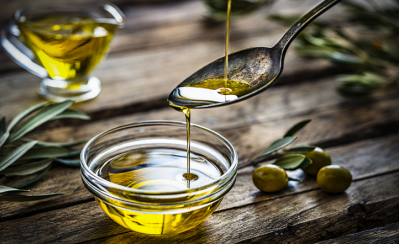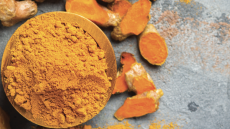Crataegus extract shows promise for weight management

The research, published in the journal Nutrients and funded by NeuMed Inc, also observed that the Crataegus Extract Mixture (CEM) led to significant reductions in blood lipid and leptin levels, the latter a hormone associated with appetite and blood storage.
"This double-blind, randomized, controlled study suggests that CEMs are effective and safe for reducing the body fat and weight and improving the lipid and leptin profiles in overweight subjects," the Korean researchers wrote.
"CEMs are of value to prevent the progression to mild-to-moderate obesity, hypertriglyceridemia and leptin resistance in overweight individuals."
Nutraceuticals for weight management
The growing prevalence of obesity has created a public health threat and has reached epidemic levels in many countries across the globe. Due to the significantly increased resultant risk of developing a range of diseases including cardiovascular, metabolic and skeletal types, there is an urgent need to identify effective and safe weight management tools.
While weight loss interventions are multidisciplinary, consisting of diet and lifestyle changes, individuals are often prescribed costly anti-obesity medications. Yet, many of these drugs have been withdrawn following complications associated with long-term use, including cardiotoxicity, psychiatric disturbances, and drug abuse and dependence.
Thus, the interest in the identification of natural alternatives to improve safety and economic concerns associated with drug treatments. The plant extracts C. pinnatifida and C. unshiu have been traditionally used to promote digestion and are currently being used for obesity and dyslipidaemia. Previous research identified the ability of CEMs to reduce BMI and levels of total cholesterol in a human trial.
To continue this area of research, the present trial sought to further investigate the fat loss potential of a CEM in a human cohort.
Study details
The researchers recruited 105 adults between the ages of 20 and 60 years with BMIs ranging from 25 to 30 kg/m2 for a 12-week randomised, parallel-group trial at Kyung Hee University Hospital and Research Institute of Medical Nutrition of Kyung Hee University in the Republic of Korea.
Subjects were randomly assigned to receive either a high dose of CEM (400 mg three times daily), a low dose (280 mg three times daily) or a placebo for the duration of the trial.
The CEM was a 30% aqueous ethanol extract of Crataegus pinnatifida leaves and Citrus unshiu peels, delivered in a 800 mg tablet containing either 140 mg or 200mg of the CEM. The placebo tablet contained microcrystalline cellulose.
Body fat percentage measurements were obtained using dual-energy X-ray absorptiometry (DXA), bioelectrical impedance analysis (BIA) and anthropometric measurements. Blood lipid and adipokine profiles were also measured before and after the intervention.
Findings showed that in both the high and low dose CEM groups, there were significantly greater reductions in body fat percentage when compared to the placebo group, as measured by DXA and BIA. Body weight and BMI, as well as blood leptin levels, were also found to be significantly decreased in the CEM groups.
Further analysis found that high dosages of the CEM also lowered blood triglyceride levels and very low-density lipoprotein cholesterol.
Flavonoids and fat
The research provides significant evidence to suggest CEM could be a valuable tool for managing weight and improving blood lipid profiles in overweight individuals, according to the study.
“CEMs and the herbs that comprise them, C. pinnatifida leaf and C. unshiu peel, have been reported to exert anti-obesity effects by inhibiting lipid absorption, improving lipid metabolism and regulating obesity-induced hormonal imbalances and inflammation,” the researchers wrote.
They added that the anti-obesity effects are believed to be exhibited by the abundant flavonoids in the botanicals, which manly consist of C-glycosyl flavones and glycoside derivative flavones.
The study called for further research to confirm the findings in a sample more representative of the global population, as well as an investigation of optimal dosages and long-term effects.
Source: Nutrients
Doi: https://doi.org/10.3390/nu16040494
“Efficacy of Crataegus Extract Mixture on Body Fat and Lipid Profiles in Overweight Adults: A 12-Week, Randomized, Double-Blind, Placebo-Controlled Trial”
Authors: Jungbin Song et al.















